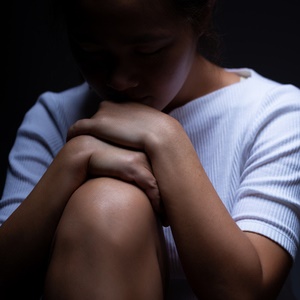
Some people look forward to the festive season. Others, not so much. According to the South African Depression and Anxiety Group (SADAG), the holidays can be tougher than usual for those with depression. It can be a time of loneliness, despair or relapsing into bad habits.
In South Africa, the month of December has the highest suicide rate of the year, says Zane Wilson, founder of SADAG.
Here are some ways to take care of your mental health during the holidays.
1. Don’t ignore the tell-tale signs and symptoms
Sometimes, a bout of depression can hit so fast without you realising. Symptoms might manifest differently in every individual – therefore it’s important to truly take note of what you are feeling and acknowledging when going through a rough patch. Here are some signs of depression over the festive season.
The festive season may also trigger sadness in some, especially when family is far away, when you had to deal with the loss of a loved one, or when you are simply reflecting over the past year. But know when it’s depression or simply situational sadness with this article.
2. Get moving
We are not saying that exercise is an instant miracle cure for depression, but studies have shown that exercise could have significant benefits for even those who are high at risk. Even small amounts of exercise may help. You don’t need to go to the gym over the festive season at all – go for walks, do short home workouts or do some yoga.
Social media can be linked to a higher risk of depression, especially in teenagers, according to a previous report on Health24. Take time out from social media over the festive season, especially if you are permanently glued to your phone. You don’t have to go cold turkey or cut all contact with friends – simply create windows of social media-free time during the holidays.
Make a conscious effort of leaving your phone in the bedroom while you read that book you always wanted to finish during the year.
4. Be mindful of family members who might be suffering
Even if you are not affected by a mental health issue such as depression or anxiety, you should know how to support someone in your house who might go through a rough patch. This article gives helpful tips on how to support a loved one.
5. Pay attention to eating disorders
The festive season and all the social eating that goes with it may be your worst nightmare if you suffer from any issue relating to eating or body dysmorphia. Be kind to yourself and ask for help if you feel like endless family dinners may take its toll on your health.
This guide may help you identify the signs of an eating disorder and how to support a loved one who might be suffering.
6. Minimise stress as much as possible
The rush and stress that comes with the festive season can trigger mental health issues. We change our routines over the holidays, deal with year-end deadlines and holiday preparations, or have to contend with large crowds in public spaces.
Keep your expectations reasonable, plan ahead for what you can, don’t overspend and create financial troubles in the new year and let go of what you can’t control. This article contains more tips.
Speaking of the new year – know that many people take a bit of a mental dip during January after the highs of the festive season. Be mindful of this and take inventory of any possible signs and symptoms of depression during this period.
Make January a bit less stressful by tying up all loose ends in December (even if you don’t have the energy right now) and by keeping your finances in check over the holiday season. Here are some more mental adjustments that may help you during this time.
8. Take stock of your current treatment plan
Now may be a good time to check in with your therapist or doctor before everyone takes a break for your holiday. They may help you reassess your current medication. A session with a therapist might also help prepare you for any lows that you might experience during the festive season. They may also help you come up with a plan to help you manage depression or anxiety over the new year.
Do you suspect you might be suffering from depression but hesitant to ask for help? These are the signs that you may need a psychologist.
A low self-esteem can be a big sign of depression, anxiety, eating disorders or any other mental health condition and it may have a crippling effect on your overall health. During the festive season, low self-esteem can soar when we compare ourselves to siblings, more successful family members or friends having a great time on an expensive holiday. But ultimately, this will not do you any favours. This article may be able to help.
10. Understand the grieving process
Whether you are dealing with the loss of a loved one, the loss of a job, the diagnosis of a terminal illness, or a family member moving far away, know that mourning is a normal process. This article explains the four so-called tasks of mourning, which may guide you through the process.




 Publications
Publications
 Partners
Partners











